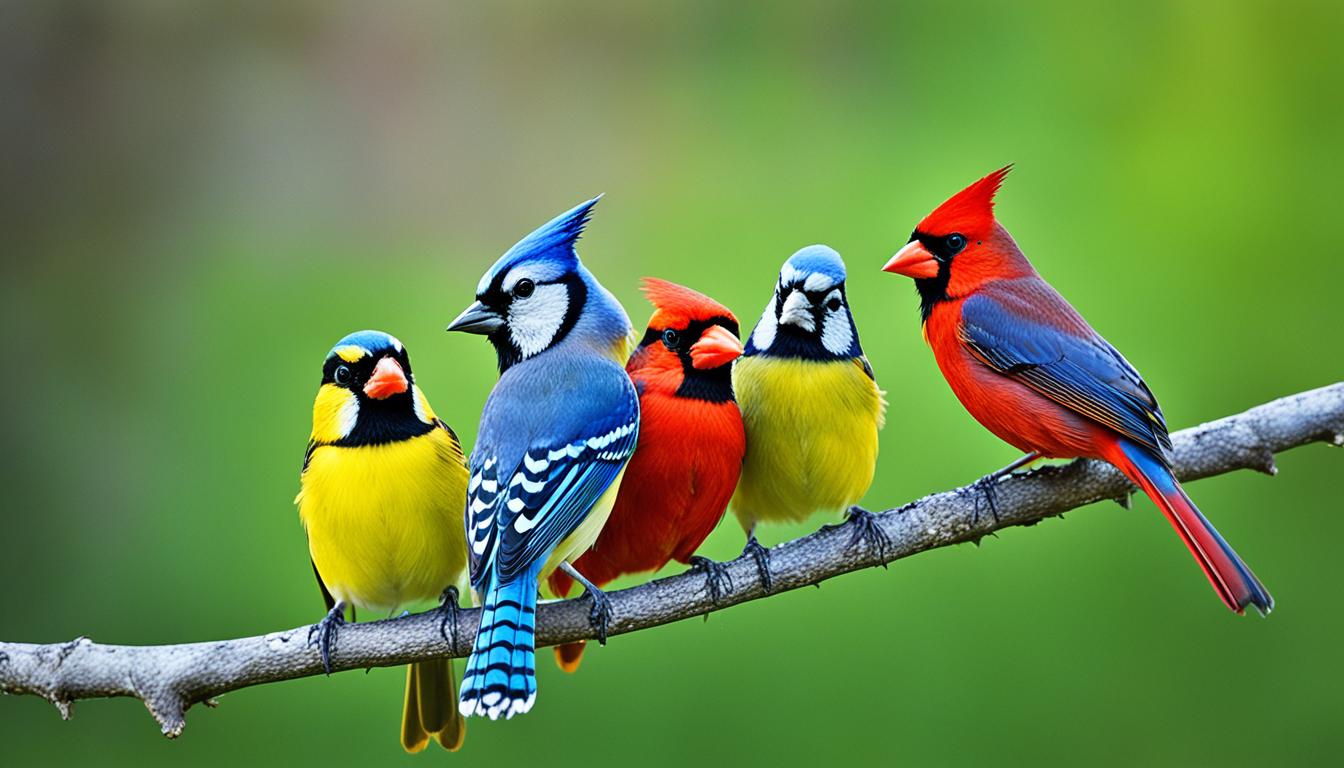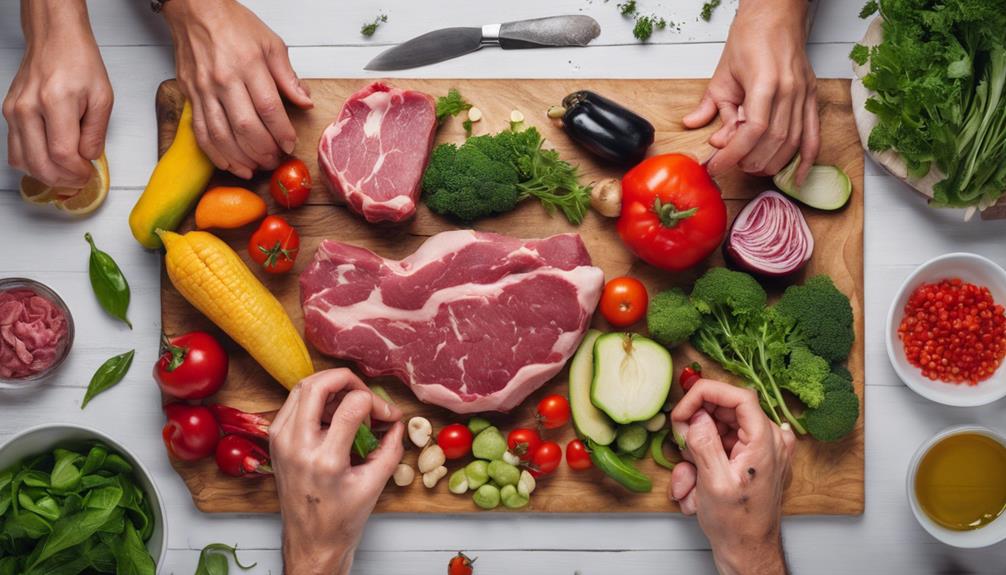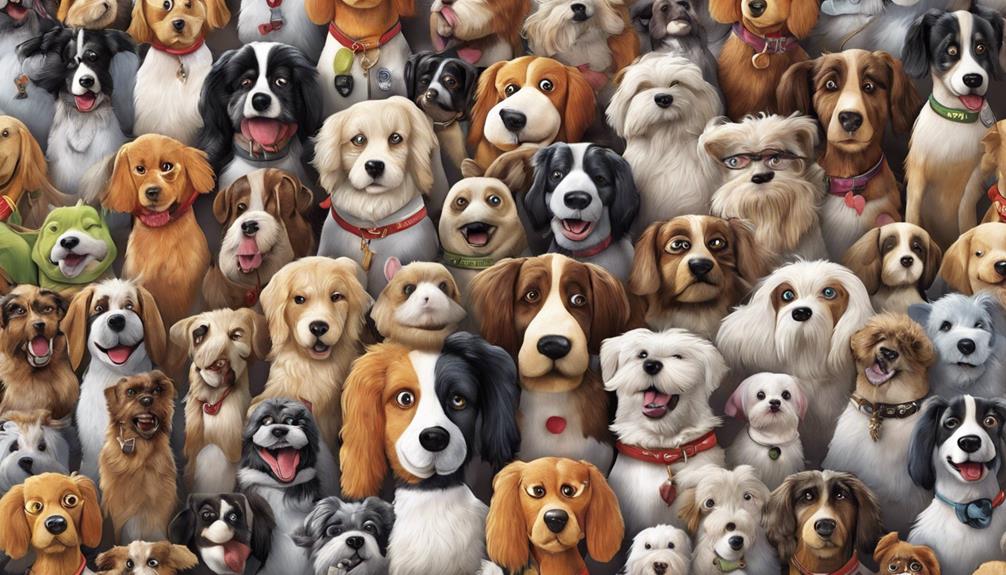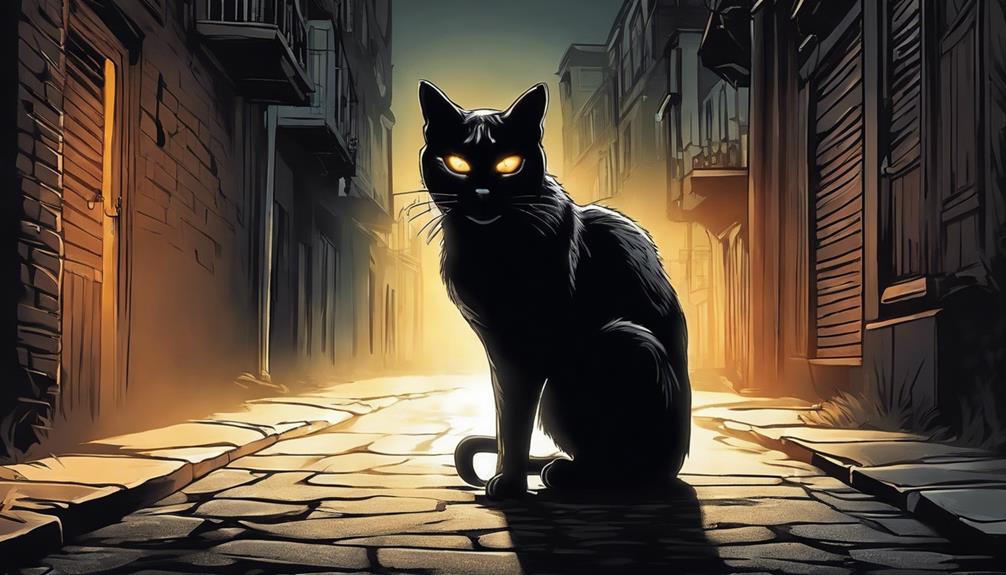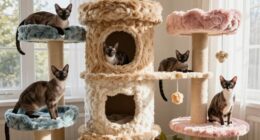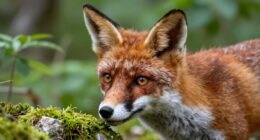Dogs shouldn't eat cat food. Cat food has different nutrients that can upset their stomachs. The high protein levels in cat food aren't good for dogs' kidneys and liver. It can lead to health problems like digestive issues and deficiencies. Keep dog and cat food separate to avoid accidents. If a dog eats cat food, it can cause serious issues. Seeking advice from a vet is vital to keep your dog healthy. They can advise on the right diet plan. Understanding these differences is important for pet owners. Want to understand more about this pet food topic?
Key Takeaways
- Cat food lacks essential nutrients for dogs.
- Regular consumption can lead to health issues.
- High protein levels can strain dogs' organs.
- Establish separate feeding areas for dogs and cats.
- Consult a vet for tailored dog nutrition advice.
Potential Risks of Dogs Eating Cat Food
Eating cat food can pose serious health risks for dogs due to nutrient imbalances and potential digestive issues. Cat food is formulated specifically for the unique dietary needs of cats, containing higher levels of protein and fat than what dogs require. When dogs consume excess protein from cat food, it can strain their kidneys and liver, leading to long-term health problems.
Signs of intestinal discomfort in dogs, such as vomiting, diarrhea, or bloating, may indicate that the cat food is causing digestive issues. These symptoms shouldn't be ignored, as they can progress to more severe conditions if not addressed promptly.
Maintaining a balanced diet is essential for dogs' health, and feeding them cat food regularly can result in deficiencies of essential nutrients important for their overall well-being. It's important to prioritize your dog's health by avoiding feeding them cat food and opting for nutrition specifically designed for dogs.
Nutritional Differences Between Dog and Cat Food
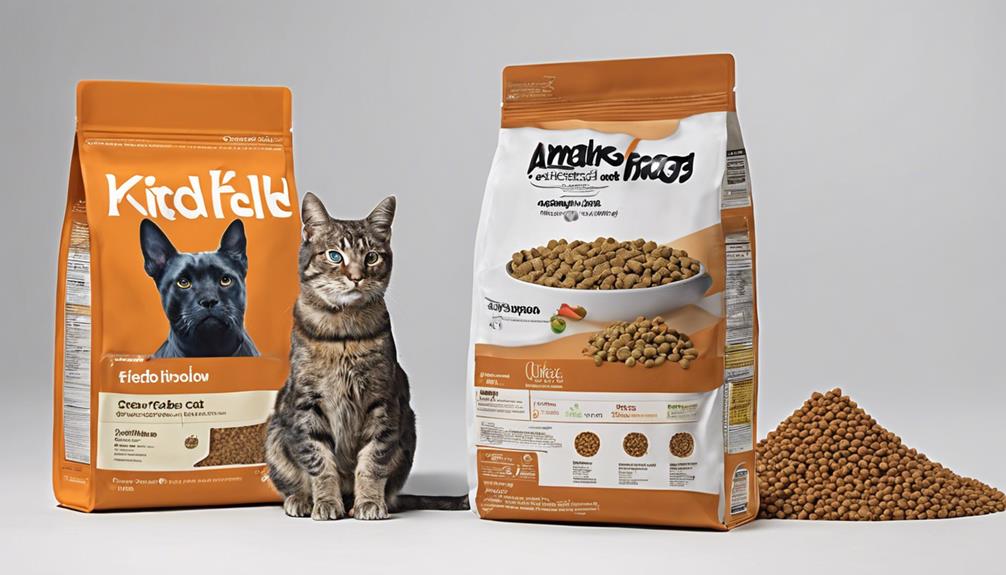
When contrasting dog and cat food, it's important to consider the significant differences in their nutritional compositions. Cat food contains higher levels of protein, fat, and taurine compared to dog food. While dogs require 10 essential amino acids, cats need 11, including taurine, making it essential for feline diets.
Commercial cat food isn't nutritionally adequate for dogs, as it lacks the specific nutrients dogs need to thrive. On the other hand, dog food can generally fulfill the nutritional requirements of cats, although it may not be ideal for their health in the long run. Despite this, cat food tends to be more appealing to dogs due to its higher protein and fat content, which can lead to dogs attempting to consume it whenever possible.
Understanding these nutritional variations is crucial in ensuring the proper diet and health of our beloved pets.
Impact of Cat Food on Dog Health
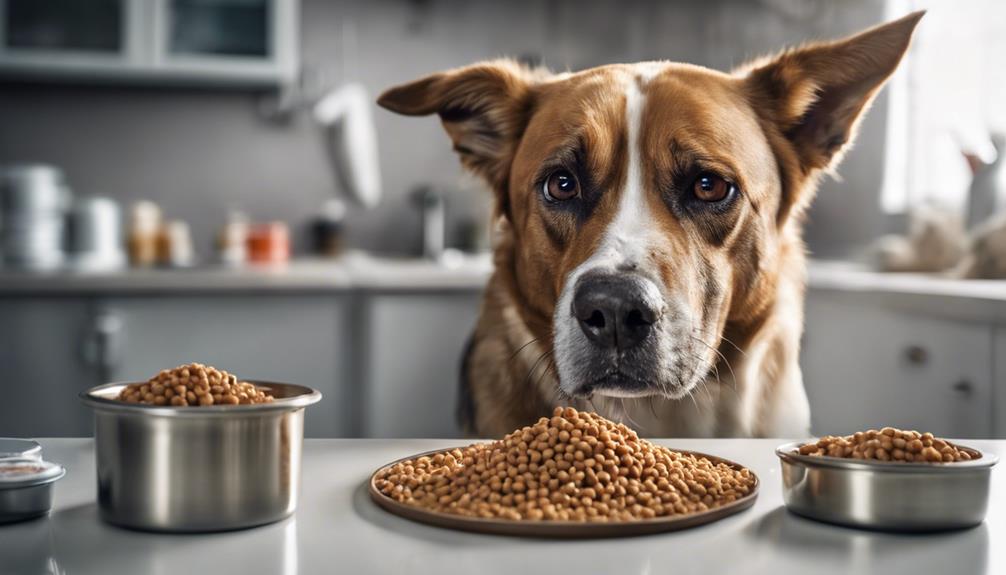
Considering the nutritional disparities between dog and cat food, it becomes evident that feeding cat food to dogs can have detrimental effects on their overall health. Cat food lacks the essential balance of nutrients required for best dog health.
When dogs consume cat food regularly, it can lead to digestive issues such as upset stomach, diarrhea, and vomiting. Additionally, the high protein levels in cat food can put a strain on a dog's liver and kidneys, especially if consumed in excess. Dogs with sensitive stomachs or kidney problems should avoid cat food altogether to prevent further health complications.
Additionally, excessive consumption of cat food can result in obesity and pancreatitis in dogs. Hence, it's important to feed dogs a diet specifically formulated to meet their nutritional needs to make sure they stay healthy and thrive. Remember, when it comes to your furry friend, their health should always be a top priority.
How to Prevent Dogs From Accessing Cat Food
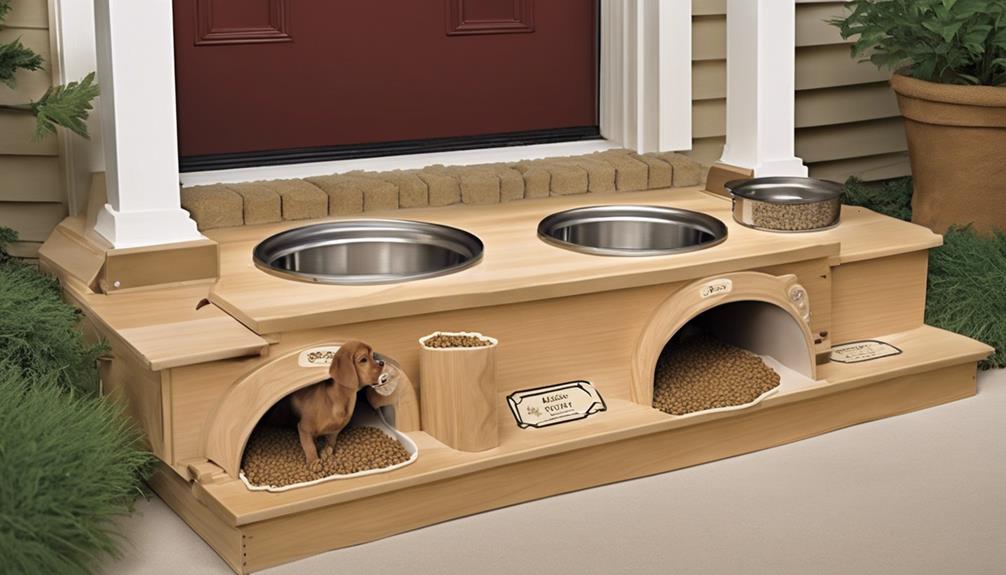
To prevent dogs from accessing cat food, establish a dog-proof feeding area and guarantee separate feeding spaces for your pets.
Place the cat's food bowl in a location where the dog can't reach it, like on a higher surface. Consider setting up a secure crate for the cat to eat in a safe spot away from the dog during feeding times.
Dog-Proof Feeding Area
We suggest creating a separate feeding area for your cat that's inaccessible to your dog. This dog-proof feeding area helps guarantee your canine companion can't access the cat food.
Consider placing the cat's food bowl in a higher location where your dog can't reach. Installing a crate or barrier can allow your cat to access their food while keeping the dog out.
It's crucial to keep a watchful eye and make certain that canine housemates stay away from the cat's feeding area to avoid them eating the cat food. Also, make sure that older cats can easily reach their food without any interference from dogs.
Separate Feeding Spaces
Let's make sure that both our cat and dog have separate feeding spaces to prevent the dog from accessing the cat food. It's crucial to feed your pets in different rooms to avoid any unwanted food sharing situations. Consider placing the cat's food bowl in a higher location where the dog can't reach.
Another option is to install a crate for the cat during feeding times to keep the dog away from the cat's food. It's also a good idea to keep canine housemates at a distance when it's mealtime to prevent any accidental sharing. Additionally, make sure older cats can access their food easily without any interference from dogs.
Seeking Veterinary Advice on Dog Nutrition
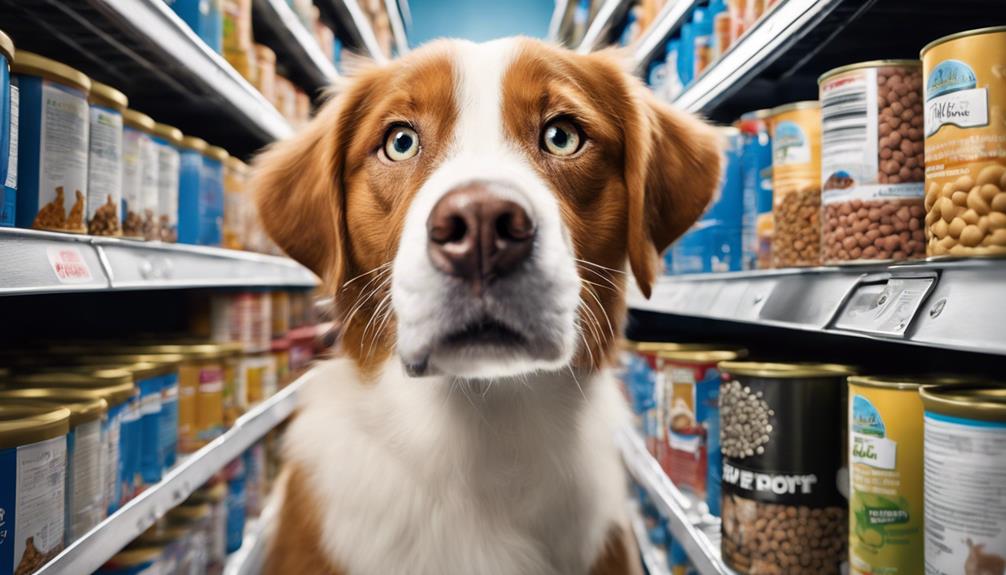
Seeking veterinary advice on dog nutrition is important for ensuring the best health and well-being for our furry companions. When considering feeding cat food to dogs, consulting a veterinarian is essential. Veterinarians can assess if cat food meets a dog's individual nutritional needs and provide guidance on safe incorporation. Factors like the dog's age, breed, and any health issues should inform decisions about introducing cat food into their diet.
While healthy adult dogs can occasionally consume cat food without major problems, it's still advisable to seek professional advice to prevent any potential issues. Proper nutrition tailored to a dog's specific requirements is crucial for maintaining their overall health and well-being. Hence, before making any changes to your dog's diet, it's best to consult with a veterinarian to ensure that the food choices align with your furry friend's individual health needs.
Managing Dogs Diet When Cats Are Present

When cats share a home with dogs, it's important to manage their diets carefully. Dogs have different dietary requirements than cats, and consuming cat food can pose potential health risks for them.
Dogs Dietary Requirements
Ensuring dogs have access to their own suitable food is vital when managing their diet in a multi-pet household with cats. Dogs require a balanced diet of protein, fats, carbohydrates, vitamins, and minerals, different from what cat food offers. Feeding dogs cat food regularly can result in nutritional deficiencies and health issues. It's essential to monitor your dog's food intake and provide them with appropriate dog food to meet their specific dietary requirements.
To prevent cats from eating dog food, feed them separately in designated areas. If unsure about managing your dog's diet in a multi-pet setting, seek advice from a veterinarian. Remember, each pet has unique dietary needs, and proper nutrition is key to their overall well-being.
Potential Health Risks
In a household with both dogs and cats, managing the dogs' diet becomes crucial to avoid potential health risks associated with them consuming cat food. Dogs have different nutritional needs than cats, and regularly eating cat food can lead to various health issues. To highlight the risks, let's look at the table below:
| Potential Health Risks for Dogs Consuming Cat Food | Effects |
|---|---|
| Lack of essential nutrients | Nutritional deficiencies |
| Digestive problems | Upset stomach, diarrhea |
| Obesity | Weight gain, joint issues |
| Pancreatitis | Inflammation of the pancreas |
To keep your dogs healthy, make sure they have a balanced diet tailored to their specific nutritional requirements. By monitoring their food intake and preventing access to cat food, you can help them thrive and avoid these potential health risks.
Common Concerns About Dogs Eating Cat Food
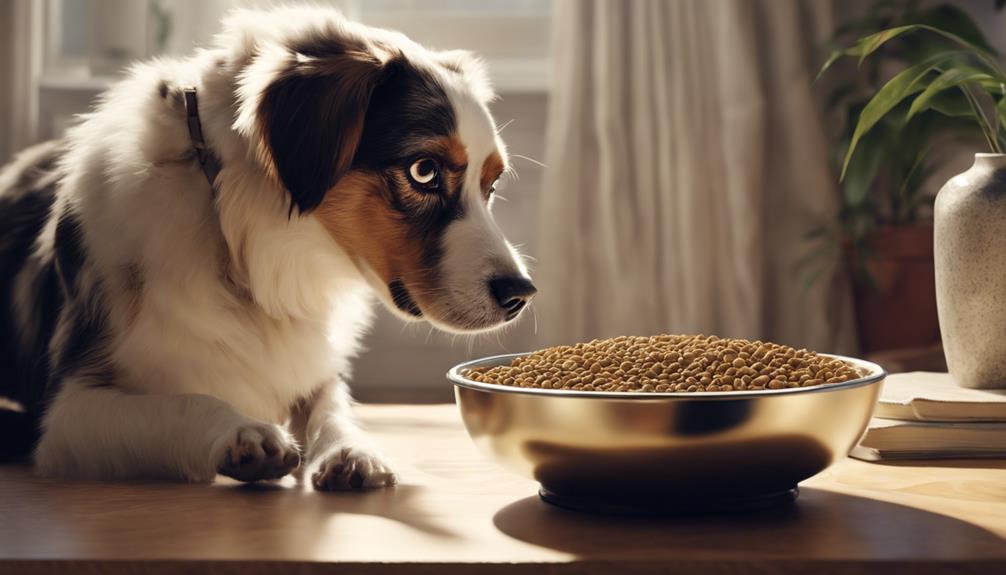
Eating cat food poses important risks to dogs due to its inappropriate nutritional content. Cat food lacks the necessary nutrients that dogs require for their overall health and well-being.
When dogs consume cat food regularly, it can lead to digestive issues and various health problems. This is because the nutritional needs of dogs differ greatly from those of cats. Dogs with sensitive stomachs, kidney problems, or obesity should especially avoid eating cat food due to the potential complications it can cause.
Additionally, feeding cat treats to dogs isn't recommended as it doesn't meet their specific nutritional requirements. Once dogs develop a habit of eating cat food, breaking this habit can be quite challenging.
Hence, it's essential for dog owners to make sure that their pets are only consuming food that's specifically formulated to meet their unique nutritional needs to maintain their health and vitality.
Health Consequences of Dogs Consuming Cat Food
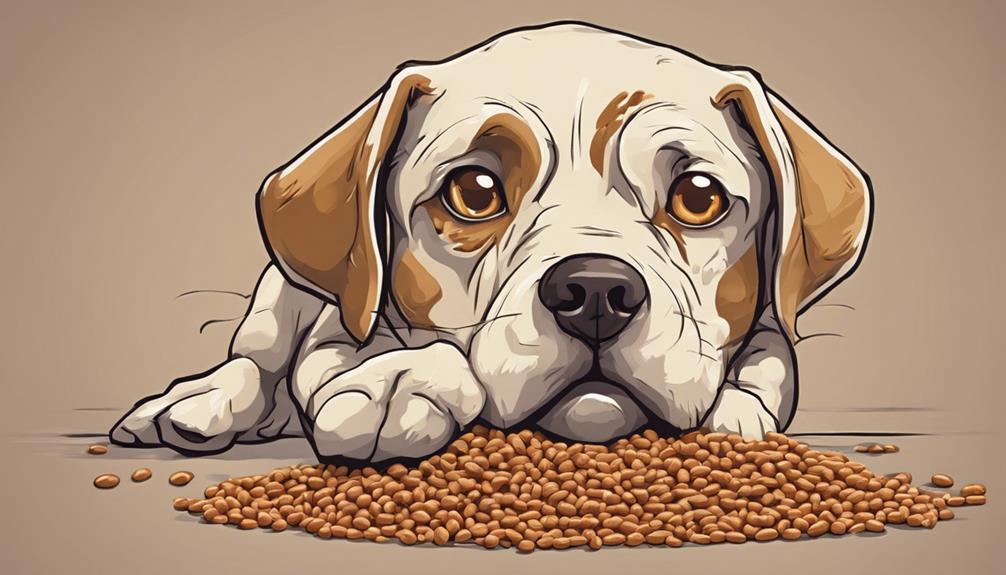
Consuming cat food can have detrimental health consequences for dogs due to its inappropriate nutritional composition. Cat food lacks the essential nutrients that dogs require for their overall well-being. When dogs regularly consume cat food, they may experience digestive problems such as vomiting and diarrhea.
This is because the high protein and fat content in cat food can be challenging for a dog's system to process, potentially straining their liver and kidneys over time. Dogs with pre-existing conditions like sensitive stomachs, kidney problems, or obesity are especially at risk of complications from eating cat food.
If you're considering allowing your dog to have occasional cat food as a treat, it's important to consult a veterinarian. A veterinarian can provide guidance on whether this occasional indulgence is safe for your dog's health and help prevent any potential health issues that may arise from consuming cat food.
Frequently Asked Questions
What Happens if My Dog Eats Cat Food?
If a dog eats cat food, it can lead to nutrient imbalances, upset stomach, obesity, and other health issues. Cat food lacks essential nutrients like taurine that dogs need.
Monitor your dog for signs of discomfort and consult a vet if needed.
It's important to feed dogs a diet suited to their specific nutritional requirements to keep them healthy and happy.
Can I Feed Cat Food to My Dog?
We recommend against feeding cat food to dogs. Cat food lacks essential nutrients for dogs, which could lead to digestive issues and health problems.
It's important to stick to a balanced diet designed specifically for your canine companion's needs. Avoid offering cat treats as well, as they don't meet your dog's nutritional requirements.
Consistency in your dog's diet is key to promoting their overall well-being and health.
Can Cats and Dogs Eat the Same Food?
Yes, cats and dogs can't eat the same food. Their dietary needs differ due to their biological variations.
Cats are obligate carnivores requiring specific nutrients like taurine found in cat food. Dog food might lack these essential components, leading to health issues if fed to cats.
It's important to provide each pet with food tailored to their nutritional requirements for best health. Remember, what's good for one may not be suitable for the other.
What Is the Difference Between Cat Food and Dog Food?
We should understand the difference between cat and dog food to guarantee our pets' health.
Cat food contains higher levels of protein, fat, and taurine, essential for feline well-being. Conversely, dog food is formulated to meet dogs' dietary needs, providing balanced nutrition.
Feeding cat food to dogs can lead to nutrient imbalances and health issues.
It's important to choose the right food for our furry friends based on their specific nutritional requirements.
Conclusion
To sum up, dogs shouldn't eat cat food due to potential health risks and nutritional differences. For instance, a friend's dog became ill after sneaking into the cat's food bowl and experiencing digestive issues.
To avoid this, always keep cat food out of reach and consult with a veterinarian for advice on proper dog nutrition. Remember, what's good for cats may not be suitable for dogs, so prioritize your pet's health and stick to their specific dietary needs.

